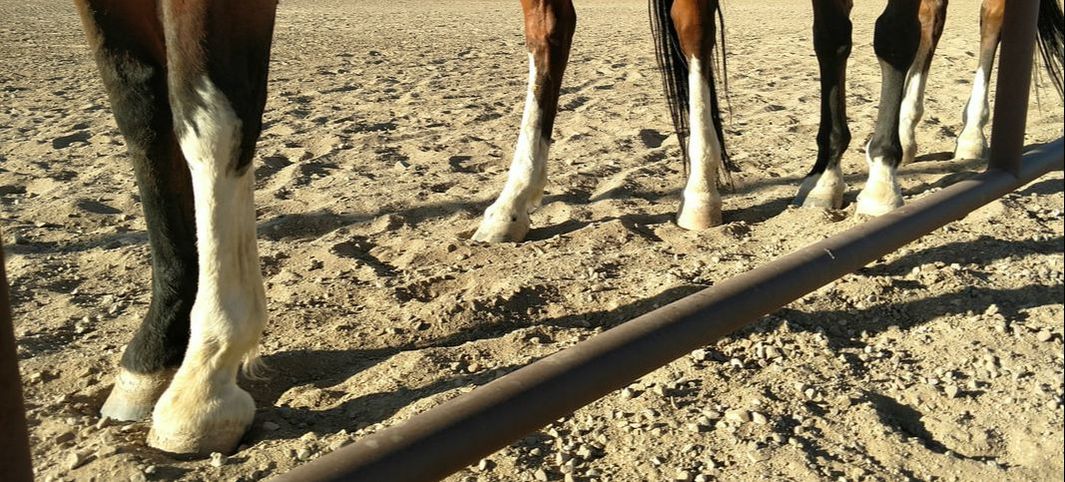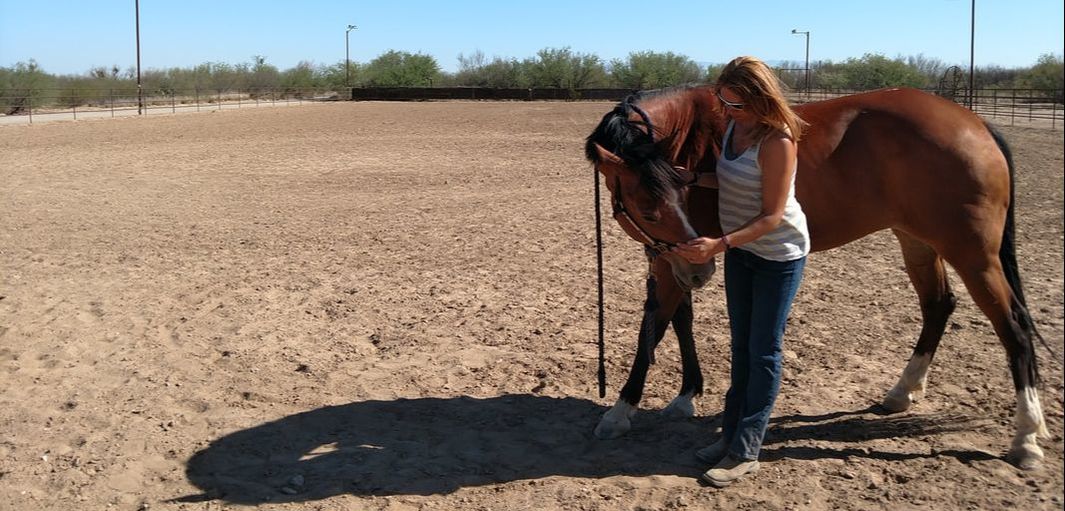|
This post may contain affiliate or sponsored links. Please read our Privacy Policy and Disclaimer.
Your horse is an athlete, and as he ages, his joints start to show signs of wear-and-tear. Joint supplements promise to keep your horse active and feeling his best, but many do not deliver the results that owners expect.
When choosing joint supplements, first consider why your horse needs additional support. Is his cartilage breaking down? Is inflammation causing his discomfort? Does he have osteoarthritis from age or old injuries? The answers to these questions will help you determine which joint supplements will be the most effective for your horse. Be sure to read the label to see how much of each ingredient is included in the dose. Some supplements do not have a high enough dose to be effective.
Glucosamine Glucosamine is a component of cartilage. As horses age, their bodies slow natural production, so cartilage slowly disintegrates. Equine glucosamine supplements may contain glucosamine sulfate or glucosamine hydrochloride, and studies show that they are equally effective. A 1,000 pound horse needs 6,000 milligrams of glucosamine per day, and horses in training may need up to 10,000 milligrams per day. With the right dosage, owners report seeing results in as little as 10 days. Glucosamine is safe for pregnant mares and does not have any known side effects. It is most effective when combined with chondroitin. If your horse needs a glucosamine-only supplement, AniMed 5000 is a good one. It contains 2,500 milligrams each of Glucosamine Hydrochloride and Glucosamine Sulfate, for a total of 5,000 milligrams per serving. Buy it here. If you prefer a glucosamine chondroitin combination supplement, I recommend Cosequin. Each scoop contains 1,800 milligrams of glucosamine and 600 milligrams of chondroitin. A 1,000 pound horse needs three scoops daily, for a total of 5,400 milligrams of glucosamine and 1,800 milligrams of chondroitin. Buy it here. 
Chondroitin
Like glucosamine, chondroitin is a natural component of cartilage, and as horses age, natural production slows. Chondroitin is the element that gives cartilage its elasticity and resistance to compression. Your horse may need a chondroitin supplement if he is moving stiffly. Chondroitin is most effective when combined with glucosamine, and chondroitin-only supplements can be hard to find. The effective dosage is 1,250 milligrams per day for horses at rest, and up to 5,000 milligrams per day for working horses. Again, I recommend Cosequin for a good glucosamine and chondroitin combination supplement. Buy it here. Methylsulfonylmethane (MSM) MSM is a sulfur-based anti-inflammatory. This is a good choice for horses whose joint discomfort is caused by inflammation. Studies show that this is a very effective supplement when given at the correct dosage, however, most MSM supplements do not contain enough to be effective. Horses at rest need 10,000 milligrams daily, and horses at work need 20,000 milligrams. MSM can be given by itself or in combination with glucosamine and chondroitin. Note that it is not safe for pregnant mares. For a pure MSM supplement, AniMed MSM is one of the few that is strong enough to be effective. A 1,000 pound horse gets 1 tablespoon daily, with 14,000 milligrams of MSM. Buy it here. If your horse prefers a liquid supplement over a powder, I recommend RJX For Horses. This liquid contains 5,000 milligrams of glucosamine, 1,000 milligrams of chondroitin, and 5,000 milligrams of MSM for complete joint support. Buy it here.
Herbal Supplements
Several herbal joint supplements are available on the market but use caution with these. Few studies exist to show the effective dosage, and many have dangerous side effects. These do not regenerate joint cartilage like glucosamine and chondroitin, but instead have an anti-inflammatory effect similar to phenylbutazone. The United States Equestrian Federation lists most herbs as banned substances. Yucca contains steroid saponins, and it produces a steroid-like pain reduction and anti-inflammatory response in the body. This is a dangerous joint supplement because it also suppresses the horse’s immune response and decreases the body’s production of glycosaminoglycans, which leads to further joint breakdown. Devil’s Claw also works similar to steroids by reducing pain but does not reduce inflammation. This is not an appropriate supplement for horses with ulcers or other gastric problems because it increases stomach acid. This can further lead to loss of appetite and loss of condition. Pregnant mares should not take Devil’s Claw because it can cause uterine contractions. If you want to try a Devil’s Claw supplement, Uckele makes Devil’s Claw Plus in pelleted form. This is often easier for horses to eat than powder and may appeal to a picky eater. Buy it here. Turmeric has anti-inflammatory and antioxidant properties that may effectively treat stiff joints and general itchiness in horses. No clinical trials have been conducted to determine the effective dosage in horses. Feed in combination with flax oil and cracked black pepper for best absorption. Start with one heaping tablespoon of turmeric mixed with 2 tablespoons of flax seed oil to make a paste, fed once daily. Note that turmeric can affect a horse’s ability to metabolize iron, so it is not a recommended supplement for horses with anemia. If you can’t find turmeric in your local health food store you can buy it here. Boswellia, also called frankincense, is another herb with anti-inflammatory properties. Long term it is gentler on a horse’s digestive tract and liver than Bute or Devil’s Claw and has no known side effects. Some studies indicate that it maintains joint structure integrity. The effective dose is 4,000 milligrams daily. For a herbal supplement that contains all of the above, try Uckele Devil’s Claw Plus. Buy it here
Choose the Right Supplement
The key to choosing the right joint supplement is knowing why your horse has joint discomfort. Is his joint cartilage breaking down? Does he have arthritis? Or, is inflammation the problem? Once you know why your horse needs a joint supplement, you can determine which one will work best for him. Glucosamine and chondroitin work best for those with cartilage breakdown while MSM targets inflammation. Remember to read supplement labels before feeding. Many do not have an effective dosage, so you may need to combine supplements to get the required amount. Your veterinarian is a great resource, and he can tell you why your horse needs a supplement, and which one will work best for him without causing harm from side effects. A little research and the right supplement will keep your horse moving freely and comfortably. Which joint supplements do you use for your horse? Let me know in the comments below!
1 Comment
|
AuthorWelcome! I've been a freelance writer since 2002 and have numerous horse-related articles published in print and online publications. I have a Bachelor of Science degree from Rocky Mountain College with a major in Equestrian Studies and a minor in Business Management. My current business ventures include High Plains Arena and real estate investing. Archives
March 2019
Categories
All
|
Proudly powered by Weebly




 RSS Feed
RSS Feed